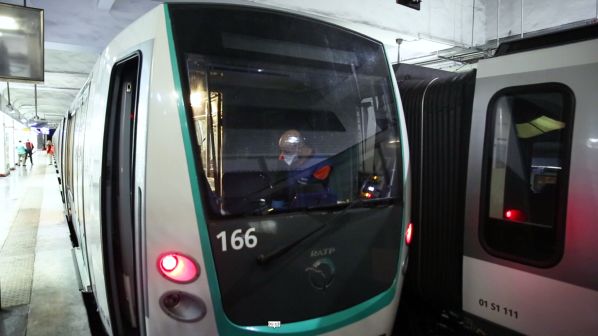In the data submitted by UITP members by May 7 and released on May 13, Germany’s public transport sector is expected to report a loss of €5-7bn, including €150m by BVG in Berlin. In France, outside of Paris, local transport farebox revenue is expected to fall by more than €1bn with losses relating to accessing public transport estimated at €2bn. In Ile-de-France region centred on Paris, Ile-de-France Mobility has already reported losses of €2bn since the beginning of lockdown restrictions in mid-March. Paris Transport Authority (RATP) has lost around €320m with ridership dropping by 95%.
Among the other data received:
- Netherlands: urban and regional public transport operators are projected to report a loss of €0.8-1bn in 2020
- Spain: public transport operators are currently losing €250m per month in fare revenues
- Portugal: public transport operators are currently losing €80m per month in fare revenues.
- Sweden: public transport operators are currently losing around €100m per month
- Finland: urban public transport market losses are expected to total €192m by the end of the year. Helsinki is expected to account for €150m of this figure.
- Norway: a reduction in income from tickets in March and April resulted in losses of around €100m, by the end of the year it is expected to be €400m. Additional costs due to safe distancing in school buses will be around €134m for a total loss of about €625m in 2020.
- Italy: the loss of farebox revenues will result in a €1.5bn shortfall in 2020 with a 50% reduction in passenger numbers. Milan Transport (ATM) is expecting losses of around €250m, while Emilia-Romagana region is reporting losses of €20-25m per month
- Austria: Wiener Linien has experienced an 80% drop in passenger numbers since mid-March and is expecting revenue losses of around €150m by the end of the year.
Open letter
In light of the data, the UITP has brought together 80 CEOs and city representatives from 20 countries across Europe to sign an open letter calling on European institutions to include urban public transport as one of the strategic sectors included the EU’s plan for recovery from the Covid-19 pandemic.
Among the signatures on the letter dated May 13 are leaders from Brussels Transport Authority (Stib), Wiener Linien, RATP, Amsterdam Municipal Transport (GVB), Keolis, Volvo, Transdev, Madrid Metro, Irish Rail, French National Railways (SNCF), Alstom, Lisbon Metro, Barcelona Metropolitan Transport (TMB), Hamburger Hochbahn and Warsaw Metro. The UITP is encouraging other bodies to sign up.
The letter is addressed to Ms Ursula von der Leyen, president of the European Commission, Mr Charles Michel, president of the European Council, and Mr David Maria Sassoli, president of the European Parliament.
The UITP says that to limit the consequences of the crisis on the public transport sector, exceptional targeted measures need to be adopted at the EU level and deployed rapidly.
Key accelerator
“Public transport is a key accelerator of the economy, job creation, social inclusion, health and sustainability–and by signing our Open Letter, these CEOs and city representatives recognise its important role,” the UITP says.
“The Covid-19 pandemic has demonstrated that urban public transport is essential and a common good we have to preserve. The sector is strongly inter-linked with many other economic sectors and develops economic benefits that are five times higher than its own turnover.
“Moreover, the crucial objectives of the Green Deal will not be met without a clear priority given to public transport. Consequently, public transport and local mobility systems are vital to the recovery of the European economy, both in the short and long term.
“The survival of public transport therefore should be a priority for decision-makers at the European level. We urge the European institutions to include local public transport in the European economic recovery plan and ensure that the sector can benefit from European financial recovery measures.”

